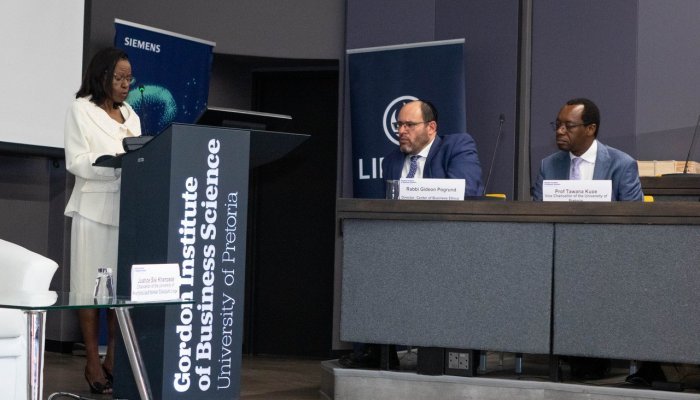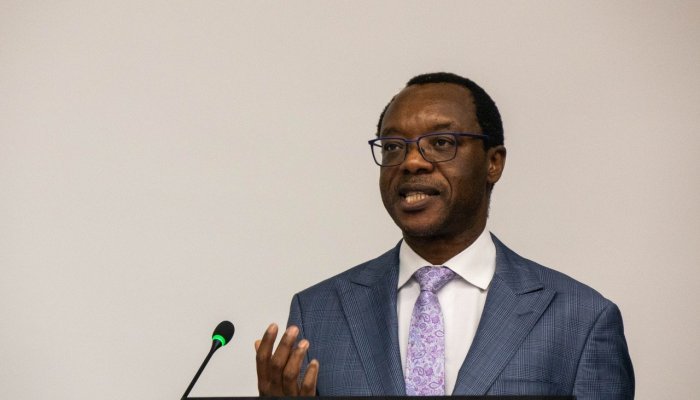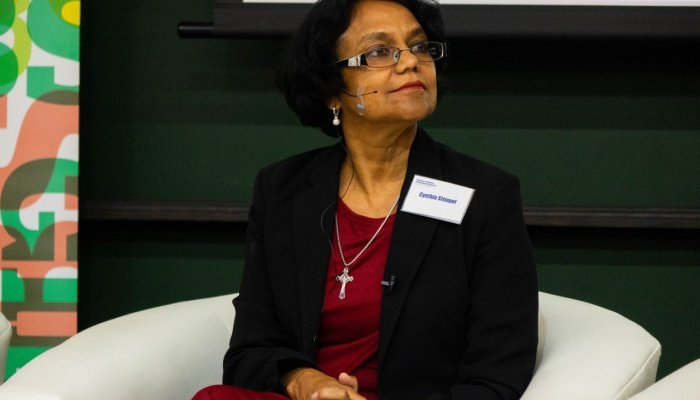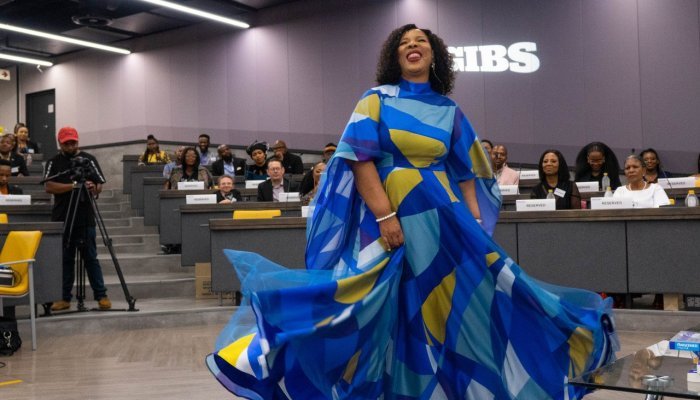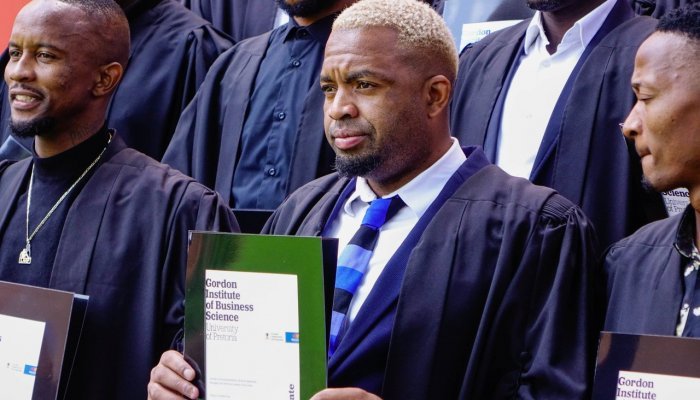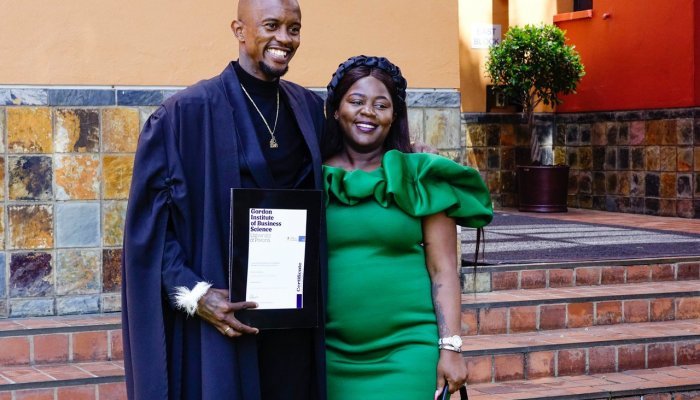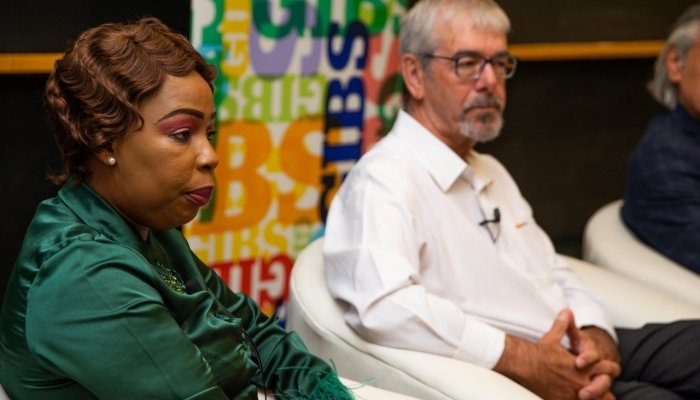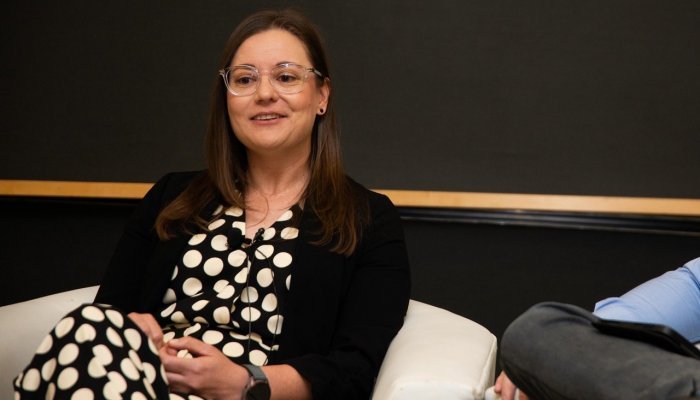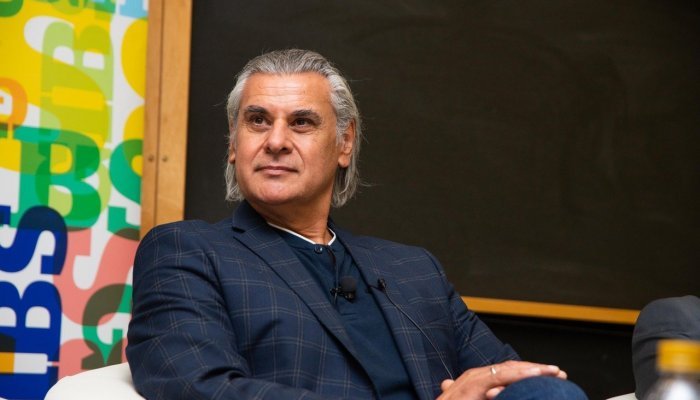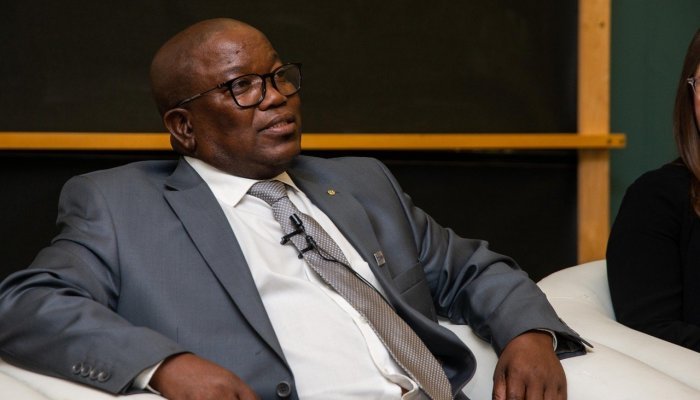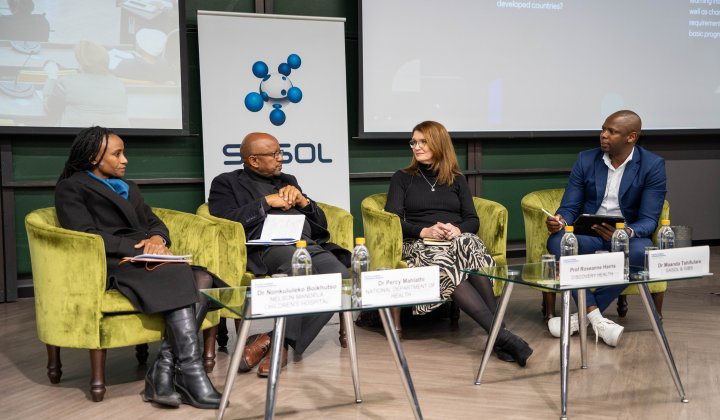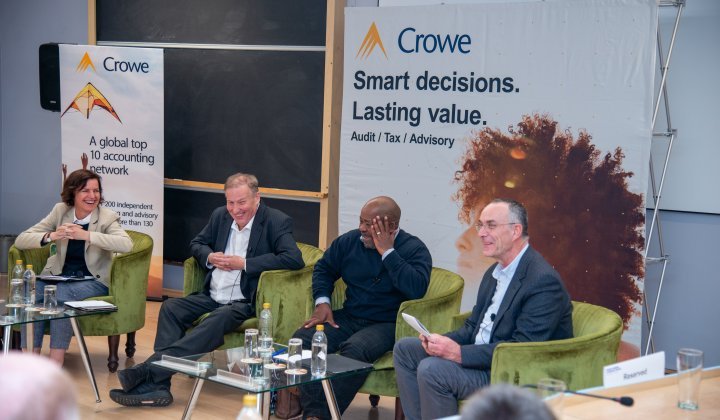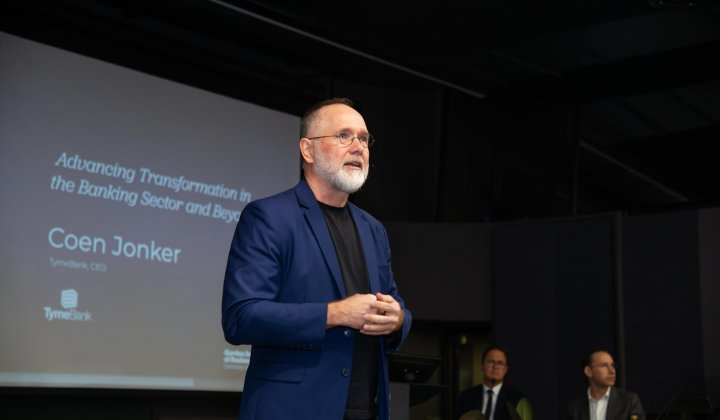Our regular look at GIBS' events and guests
Saving Whistleblowers, Saving South Africa
“If we can save our whistleblowers, I am convinced that we can save South Africa,” Emeritus Justice Sisi Khampepe, Chancellor of the University of Pretoria and former Constitutional Court judge, told a recent GIBS Centre for Business Ethics forum.
“Courage without support is a lonely and often ineffective endeavour,” she added, acknowledging the precarious position in which those who speak out about corruption often find themselves.
After a career spanning four decades in the legal field, 12 of which were spent at the Constitutional Court, “I can conclude the rot is pervasive,” Khampepe said. “There is a tide of corruption, extending from every level of government, from regional departments to small municipalities, in a brazen tango with corporate partners.”
“The focus for many years has been on the attainment of a democratic society. We have achieved that. Now, the fight is to defend our Constitution.”
“We owe a debt of gratitude to whistleblowers, and it is vital that we let them know they are not alone and that we appreciate and support them,” Prof Tawana Kupe, the Vice-Chancellor of the University of Pretoria, said in his address to the forum.
“Corrupt conduct has become institutionalised, and wrongdoing seems to pay. The decision to become a whistleblower must be one of the hardest a person can make. Many fear losing their livelihood, and their concerns are not misplaced,” he added.
Support
Supporting whistleblowers and encouraging speak-out cultures in organisations and society is crucial, Rabbi Gideon Pogrund, the founding director of the GIBS Centre for Business Ethics, said.
“Blindly following leaders is deeply dangerous. Society needs a culture of dissent from people who are brave, independent and critical and who have the intellectual and moral capacity to actively challenge leaders and hold them to account. Ethical and effective leadership depends upon this, as does the success of our country's future.”
“Whistleblowers, as we all know, often pay a terrible price for speaking out and the need to support them is urgent,” Pogrund added.
Cynthia Stimpel, who blew the whistle on wrongdoing at national carrier SAA, and who is now the executive director of Whistleblower House, said becoming a whistleblower is “a lonely journey. You don’t decide to be a whistleblower. You don't expect to be suspended, to be pushed aside. The experience is harsh, and I don’t wish it on anyone. However, we need to encourage them, otherwise how else can we get rid of corruption?”
Awakened … To My True Self by Nonkululeko Gobodo
A full house listened avidly as South Africa’s first black female chartered accountant Nonkululeko Gobodo shared insights from her new book Awakened … To My True Self.
Introduced by broadcaster Clement Manyathela, the veteran businesswoman said the book had a number of themes, including healing, issues of gender and race, as well as her passions, business and leadership.
“I want young people to know that life is full of up and downs, but you can rise up again, and rebuild again,” Gobodo said in her brief opening remarks.
Manyathela asked whether she had discovered her love for accounting when she was working as a bookkeeper at her parents’ panelbeating business?
“Yes,” she replied, “the auditors would come in and look at the books and I discovered that the audit company was owned by a black person – Professor Wiseman Nkuhlu.” (Prof. Nkuhlu is currently the Chancellor of the Univerity of Pretoria.)
Gobodo has a string of firsts behind her name, including founding South Africa’s biggest black-owned accounting firm. Manyathela wondered if that had put additional pressure on her.
“We grew up in a society where we were told there were things we couldn’t accomplish," Gobodo responded. "That was always at the back of my mind. I had to prove that there was nothing I could not do. So it became the theme behind everything that I did, that I can’t fail."
“There are all these young ones coming after us, so if, as black women, we don’t make it, then they lose hope. So it was a lot of pressure,” she said.
Risk and Rewards: The Future of Franchising in South Africa
Statistics from the Franchise Association of South Africa (Fasa) estimate that the country's franchise industry contributes around 15% (R721 billion) to South Africa’s gross domestic product (GDP). South Africa's economic output from franchising as a proportion of GDP is in the top five in the world.
The franchise economy extends to nearly every industry sector, including fast food, restaurants, offices, health and beauty, childcare and education. There is a significant presence of international franchise brands in South Africa, exposing the country to global best practice as well as allowing international brands an avenue to enter the local market.
Pertunia Sibanyoni, the CEO of InspectaCar Wesbank and chairperson of Fasa, told a recent GIBS forum that owning a franchise provides immediate brand equity and economies of scale and allows owners to replicate brand experience.
Franchising offers a proven business model and entrenched support structures for new business owners.
Empowerment
“The franchising business model is relatively simple and is a fantastic empowerment vehicle,” Richard Mukheibir, CEO of Cash Converters, told the forum. “South Africa should be promoting franchising as a business model to build the economy.”
Harry Nicolaidis, CEO of property franchise Century 21 South Africa, argued the franchising model is safe for new entrants and the benefits of joining “are enormous.”
It can be extremely difficult for individual business owners to find premises, negotiate with landlords and gain access to business financing. Franchising offers a secure business plan, support and marketing.
While the royalty or service fees of buying into a franchise can be expensive, Nicolaidis advised those considering buying a business to analyse the costs they would incur as an independent opeerator for marketing, human resources and branding. “It is safer and more economical to join an established brand,” he said.
CEO of Fasa Fred Makgato said that while there may be high barriers to entry for franchisees, “you are buying into a known business”.
Royalties, gearing and working capital are some of the considerations franchisees need to take into account for financing their business.
Franchise specialist at Capitec Bank Laurette Pienaar said she aims to build competitive value propositions and build unique solutions for each franchisee that approaches her for funding. “We take into account affordability and cost structures, as we don’t want to choke the the business from day one with loans.”
Further advice from the panel for potential franchisees included:
- Make sure you partner with the right brands.
- Do proper research.
- Speak to existing franchisees to gain an honest viewpoint.
- Look for value set and compatibility as you are entering into a long-term relationship.
- Make sure you understand the sector that you are going into.
Playing into the Future
The PSL Player Transition Programme graduation ceremony took place at GIBS in mid-November last year. The course, designed by GIBS in partnership with MultiChoice, was introduced earlier in the year to equip Premier Soccer League players with the necessary knowledge and skills to find careers off and beyond the field after they retire.
Kaizer Chiefs and Bafana Bafana skipper and goalkeeper Itumeleng Khune, Orlando Pirates playmaker Vincent Pule, Kennedy Mweene from Mamelodi Sundowns and other players received their certificates from PSL chairperson Irvin Khoza at their graduation. Dr Khoza, MultiChoice South Africa executives and family members of the graduates attended the occasion.
Despite their glamorous lifestyles and high salaries, soccer players have had a history of failing to navigate financial obstacles during their short careers. The press is often filled with stories of once-successful players who are now destitute. The lack of financial and business skills renders some of the most talented players broke after retirement.
The transition programme is a custom-made six-month course aimed at empowering soccer players with the right business and financial skills to help them find careers off the field after they retire. A total of 64 soccer players from the 16 PSL clubs enrolled in the first phase of the programme.
At the opening of the programme, Khoza had advised players on the importance of using strategies off the field that have been learnt on the field, and to be prepared for any eventuality. “After soccer careers come to an end, many professional players find themselves destitute due to lack of financial management knowledge.”
He emphasised that while soccer gave players a great headstart, life after a football career was just as important. “GIBS brings about the formal part that orientates the player through the singular lens of football and will be beneficial to the players.”
Khoza also added that with the programme’s backing, soccer players also had a greater chance of entering into administrative roles in the football fraternity.
The programme is a legacy project for MultiChoice and is scheduled to run for three years – this graduation being the conclusion of the first year.


